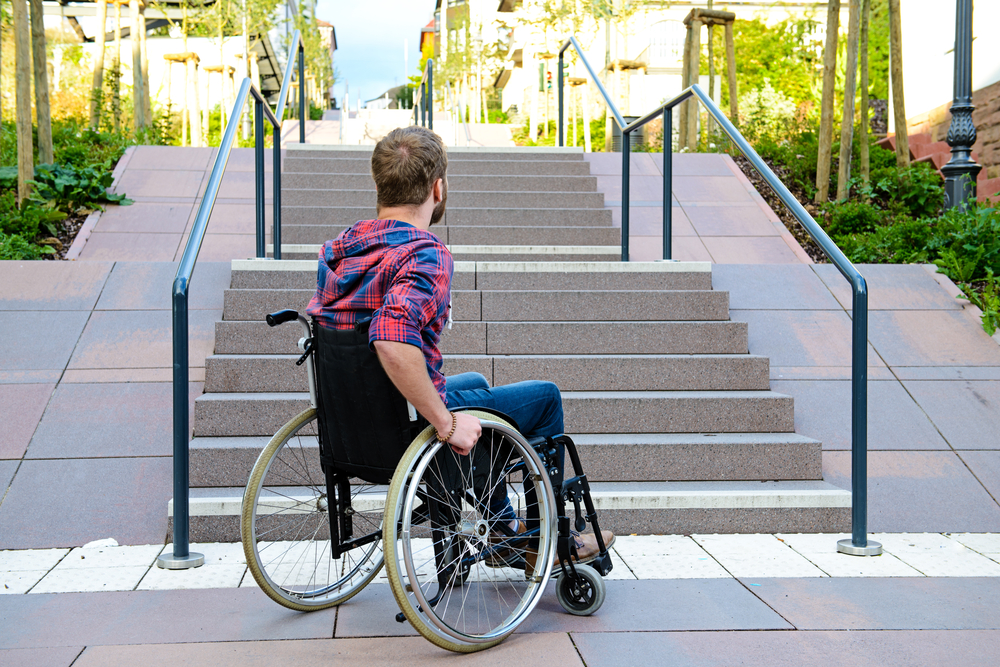Five Finalists Vie for $1 Million Prize in Mobility Unlimited Challenge

Five finalists remain in the running for the $1 million prize being offered in the Mobility Unlimited Challenge, a global competition to promote the development of innovative solutions for personal mobility devices.
A panel of expert judges selected the finalists from among 80 applications submitted by teams from 28 countries. The projects included different technological approaches to overcome the limitations of mobility devices to help improve the mobility and independence of people with lower-limb paralysis, including multiple sclerosis patients.
Each of the five finalists will receive a $500,000 grant to develop their idea further, and the final winner of the challenge, which will be announced in 2020 in Tokyo, will be awarded $1 million.
In addition, the finalists will have the opportunity to attend tailored workshops, receive mentoring opportunities with engineering experts, and collaborate with patients to gain further insights that may help them improve their concepts as they approach the end of the competition.
The Mobility Unlimited Challenge was launched by the Toyota Mobility Foundation in collaboration with Nesta’s Challenge Prize Centre. .
“Current personal mobility devices are often unable to fully meet the needs of users due to limitations affecting functionality and usability,” Charlotte Macken, from Nesta’s Challenge Prize Centre, said in a press release. “We hope that challenges like this can inspire innovation and are excited to see how the five finalists use this opportunity to develop their ideas further.”
One of the selected projects is The Evowalk being developed by Evolution Devices in the U.S. It is a non-intrusive sleeve with sensors worn around the leg. The Evowalk will track the user’s walking motion, while also stimulating muscles to improve mobility and rehabilitate the muscles over time.
Pierluigi Mantovani, from Evolution Devices, said it was “amazing” to be selected. “This support will help us finish our research and develop the device further, so we can get it to the people who really need it. People like my dad. My dad has multiple sclerosis and developed foot drop. He was recommended a device that was far too expensive so myself and some friends built this prototype that helped. After that we wanted to make something affordable for others. Our main goal has always been to help people regain the ability to walk freely again,” Mantovani said.
Moby, being developed by Italdesign, in Italy, is the first mobility service created for wheelchair users. Similar to the existing bicycles share scheme found in many urban hubs, Moby will consist of wheel-on electric devices that a user could connect with via a phone app to easily move around cities.
“Moby is a concept we developed over time, working with users of wheelchairs. They said they wanted a way to make travelling easier and so we developed this platform,” Serena De Mori, from Italdesign, said. “We (…) hope to develop the concept further and to build the first prototypes to test on the street as soon as possible. We are looking forward to bringing this concept to reality and working with users to improve it over time.”
Phoenix Ai Ultralight Wheelchair, from Phoenix Instinct, U.K., also is a finalist. It is an ultra-lightweight manual wheelchair that incorporates several sensors that allow it to self-balance and adjust according to the user’s moves. Phoenix Ai wheelchair’s learning ability and intelligent, lightweight power eliminates painful vibrations while improving usability.
Another finalist is a mobile exoskeleton being developed by researchers at Team Qolo at the University Of Tsukuba, in Japan. The Qolo Standing Device is a lightweight, mobile exoskeleton on wheels, which allows users to sit or stand as they wish, changing both physiological and social aspects of everyday living. The responsiveness of the exoskeleton is controlled using the upper body, which allows the hands to be free.
“We want to remove the chair from wheelchair. This means that wheelchair users can interact with other people at the same eye-level, improving communication and changing the way they see the world,” said Kenji Suzuki, from Team Qolo.
The remaining project selected by judges is QUIX, which is being co-developed by researchers at IHMC (Florida Institute for Human and Machine Cognition) and Myolyn in the U.S. The team aims to build a robotic, powered exoskeleton designed to provide fast, stable, and agile upright mobility to people with lower-limb paralysis. Using advanced technology, the QUIX exoskeleton model is expected to ensure the mobility, safety, and independence that current models can’t achieve.
Eric Krotkov, PhD, chief science officer at Toyota Research Institute and one of the judges of the Mobility Unlimited Challenge, said: “There are so many technological opportunities to explore approaches to alleviate challenges stemming from lower-limb paralysis. A competition like the Mobility Unlimited Challenge gets innovators to focus on the same problem to identify something of great common interest that serves society.”
“I am excited by these finalists who have a breadth of technical approaches — wheelchairs, orthotics, braces, exoskeletons. I look forward to seeing how they will take these devices out of their conceptual stage to help our end users,” Krotkov said.
According to Toyota, the most common causes of lower-limb paralysis are multiple sclerosis, spinal cord injury, and strokes.






